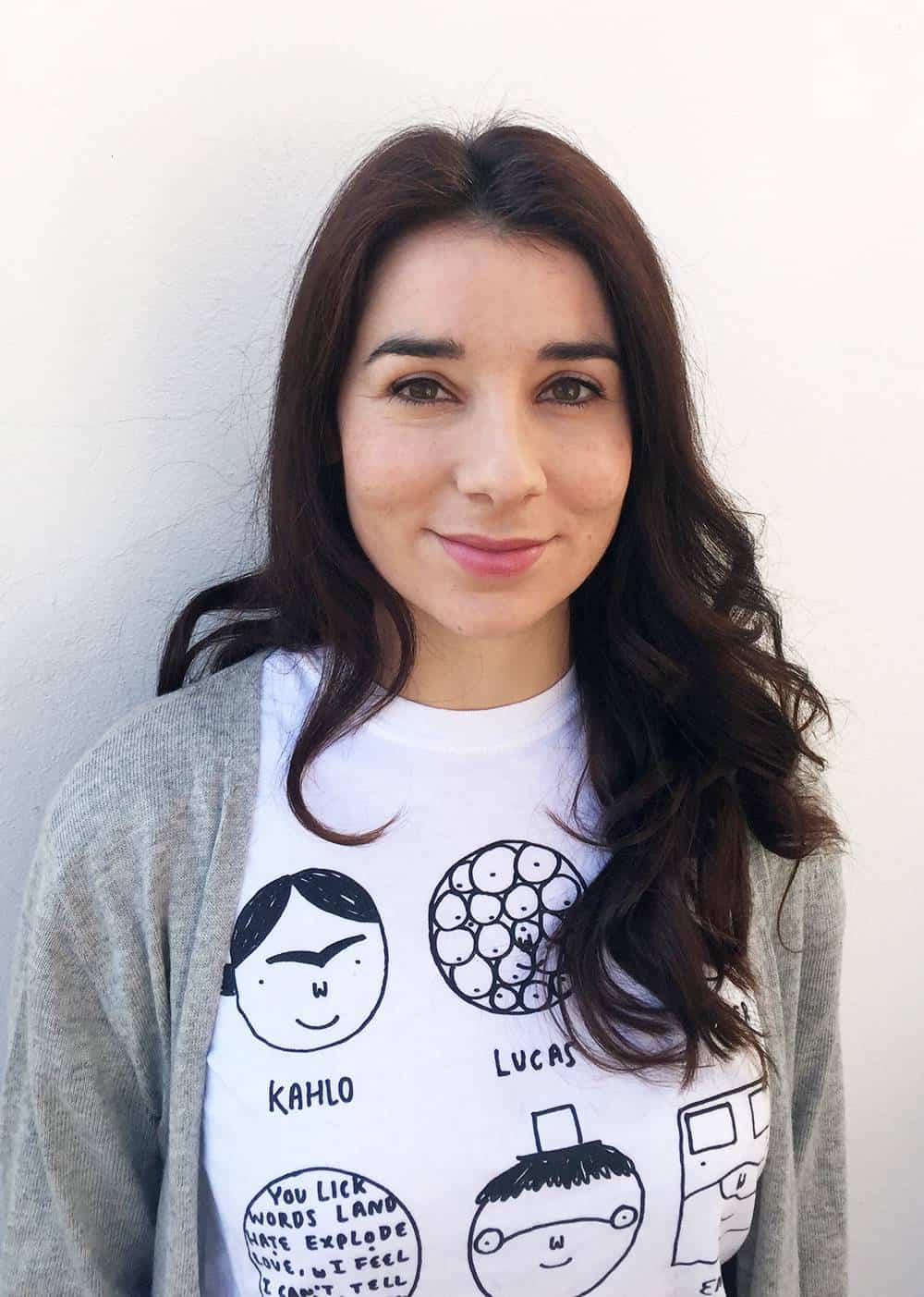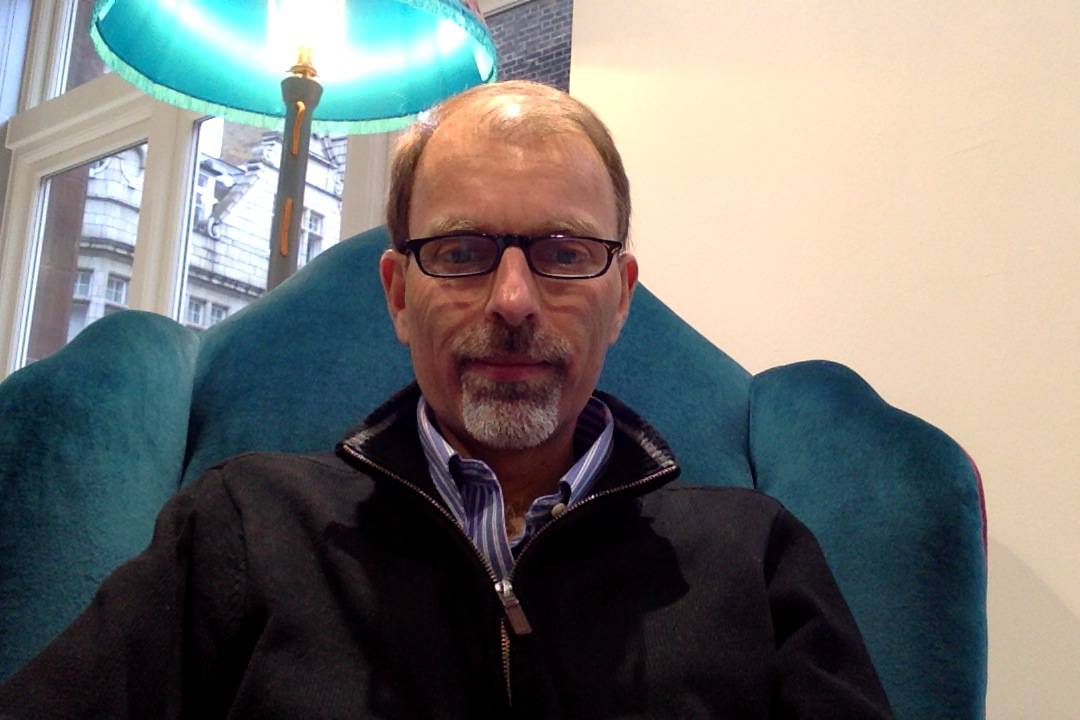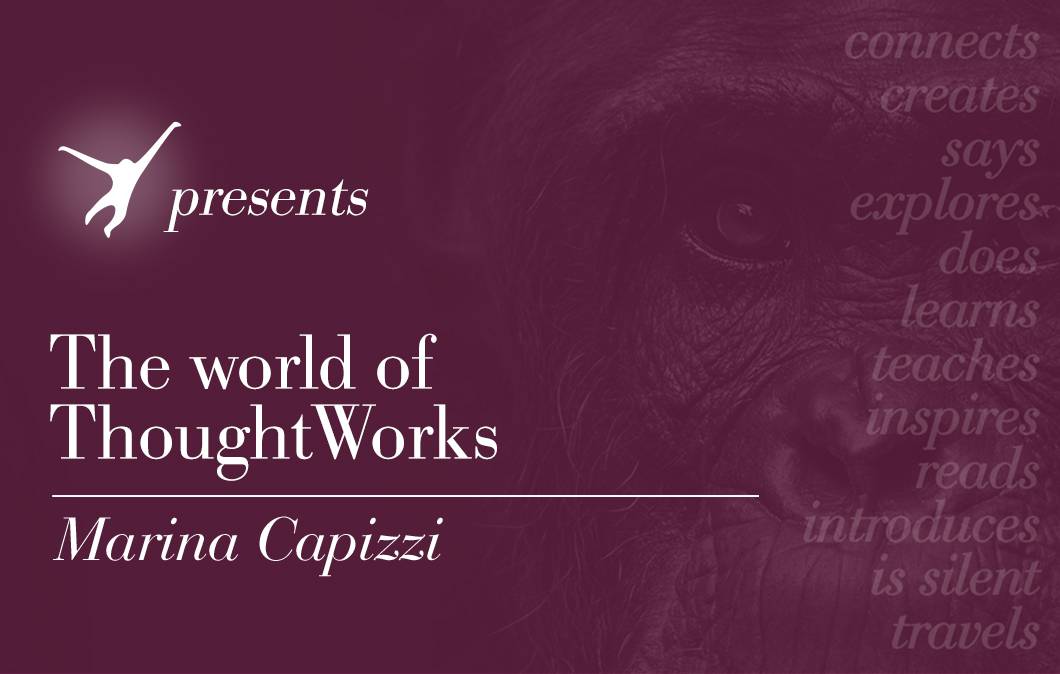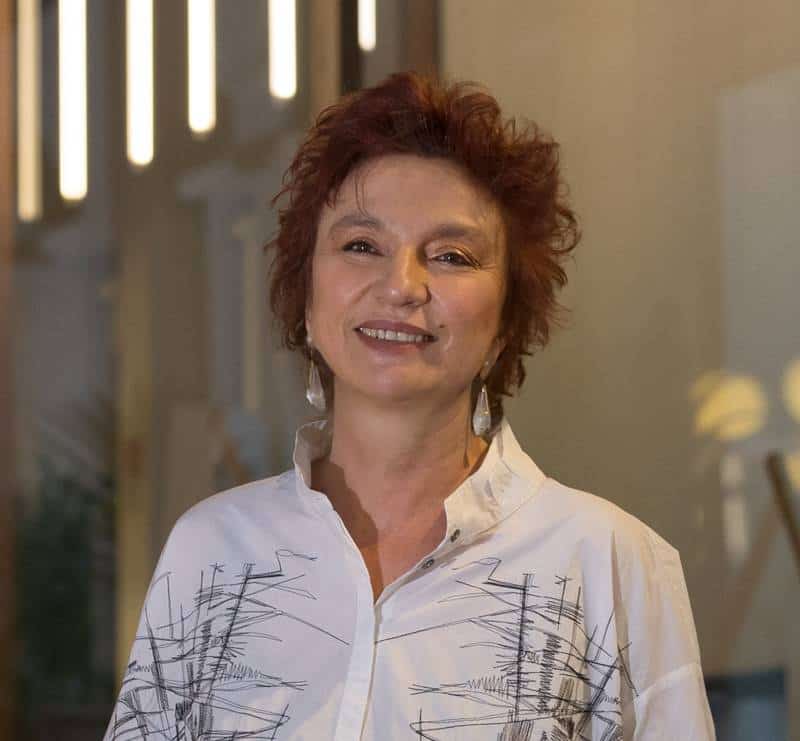The power of evolutionary purpose can be the main element of governance. How does it work when this happens
Let’s find out together, exploring the world of ThoughtWorks.
L’IMPRESA, N°2, 2018, GRUPPO24ORE
Sara Michelazzo, 32, enters the ThoughtWorks offices in London (Soho) for the first time on June 14, 2015. ThoughtWorks is a software company of 4,500 people worldwide, 15 countries, 42 offices. During the selection process, Sara participates in several interviews (logic test, portfolio review, design strategy, pitch). The recruiter only activates the contact. The interviews are run by her future colleagues. One of the fundamental steps of the interview process is to talk about a topic related to social and economic justice. She talks about the refugees.
One purpose, three pillars
Founded more than two decades ago in Chicago by Roy Singham, ThoughtWorks is a company that has a fundamental element of governance: using technology to make the world better. This purpose guides every internal and external decision and activity. The purpose translates into three pillars that move the whole organization: run a sustainable business, champion software excellence and revolutionize the IT industry, advocate passionately for social and economic justice. When Sara enters ThoughtWorks headquarters, she notices a playful and familiar atmosphere. They take a picture of her and stick it in the fridge where it says: “New faces: have a chat with them”. An entire kitchen overlooks the open space. There are people who have breakfast and make coffees while chatting with each other. Sometimes someone comes to say hello and starts talking to her. In the first two days, Sara joins the onboarding process. She chooses and set up her Mac, fills the documents for the insurance, downloads the app for the refunds. Nobody checks the refunds because one of the values is to “do the right thing”. There is trust in the fact that people will behave well: you cannot improve the world if you are the first to be incorrect.

From buddy to sponsor
On the walls, one poster says: “Some people are trans. Get over it”, (if you want to promote social justice, start including those who are different from you). At the beginning, like everyone else, Sara has a buddy, a friend. It is essential that newcomers get to understand the organization. How are the buddies chosen? Simple: E-mail: is there anybody who wants to be a buddy of newcomers? The buddy accompanies you as long as you need it. After that, you are invited to choose a sponsor. Sara chooses her sponsor in the network of people she met during the interview process. The sponsor offers a space for listening and there are no rules: it starts and ends according to needs. You can change sponsors whenever you want. If you join ThoughtWorks without work experience (graduation is not a fundamental requirement), you can go to ThoughtWorks University in India or in China for six weeks. Teachers are not real professors but employees who lend themselves to teaching periods. The ThoughtWorks University Alumni have the opportunity to create an international network and to share knowledge.
Beach, first place of work
People who join the company with previous work experience, are given a clear message: for the initial period you will have to explore and you might not be productive, even for six months or a year. In order to champion excellence and revolutionize the IT industry you cannot work belly on the ground, you have to create the conditions for the future to show through new ideas. The first “place” of work, in fact, is called the beach. The beach is an open space where ThoughtWorkers spend time when they join the company and when they are not assigned to a project. In the beach, people self-organize themselves: they study, they write open source software. There are people who write articles, books, prep for conferences. From time to time someone reaches out to people in the beach and ask for their help. The time spent on the beach is not pre-established: it depends on your role and skills and the market at that moment.
Nobody tells you what to do
Sara, after a week from her arrival, joins a strategic project involving prominent ThoughtWorkers. On day one, she asks her boss (or at least to who she thinks is her boss): “What should I do?”. Answer: “We have hired you so that you can tell us what to do”. In ThoughtWorks everyone is encouraged to add value by bringing their point of view, no one is only an executor. A few months after her arrival, Sara participates in the redesign of the newcomers’ onboarding process. At ThoughtWorks, no one tells you how to grow, every year each ThoughtWorker decides her goals: how do you feed the world evolution if you do not take ownership of your development first? When people join the company they can be part of many communities. Communities are open, people can listen and contribute (people can leave communities anytime). Nobody tells you what to do. You decide autonomously, in accordance with your role and interests. The communities are self-managed.
Nobody gives you a role
Sara joined as a designer with an interest in product strategy so she joined the community of the latter to learn. The network is very important and highly encouraged: new ThoughtWorkers are introduced to many people and invited to the communities. You make yourself known by contributing (aren’t you here to feed excellence?).
If you want to change team or role, you can talk to anyone. The important thing is that you talk to someone, and they will do their best to redirect you to someone that can help. When you contribute a lot to a community it is natural to become part of it and someone could ask you to play that role. The people team can formalize the transition. Nine months ago, Sara decides to return to Italy. She communicates her decision to her sponsor, who advises her to speak with certain people in the organization. When you ask, the system directs you, everyone gives you information: widespread servant leadership. A month and a half later, Sara moved to Italy.

The experience of an over 50 manager
In Italy, she meets Pascal Jansen, 54 years old. His role is Client Principal. He manages relations with customers and coordinates proposals for new projects. For now, there are only eight people hired by ThoughtWorks Italy, the rest of the roles are filled by over fifty colleagues who come from other countries (however, they are hiring!). First problem: explain to the Italian purchasing offices how ThoughtWorks works. Pascal comes from companies where, since the nineties, he experienced the software engineering crisis: too many failed projects, too much useless software, too much time wasted. The founder of ThoughtWorks, Roy Singham, found the solution to this in ’98: it’s called Agile. Roy together with the first ThoughtWorkers, including Martin Fowler who contributed to the writing of the “Agile Manifesto”, released an agility mindset in the DNA of the company. This mindset drove the company to explore new ways of working. Thus, in ThoughtWorks, new practices were born such as continuous integration, continuous deployment. Those practices have been shared and promoted externally creating the technological conditions for the birth of the current platform-based digital giants such as Amazon and Netflix.
The value of feeling part of the greater good
Pascal joined ThoughtWorks 3 years ago, at an age where it is not obvious to continue to find the motivation for a job you’ve been doing for a long time. I am reborn, he says, it seems impossible that there is such a beautiful company! Promoting technological excellence and sharing what we learn, says Pascal, gives us the feeling that, while generating profits, we are doing something useful for others. We worked on a project for the British Government that revolutionizes how they serve citizens with information technology. We work at many pro bono projects to support developing countries and, by choice, we do not work for any department of Defense. This makes us feel part of the greater good. The profitable & sustainable business puts us in perspective of nurturing everyone’s development plans and realizing the purpose. For this reason, with regard to a client, everyone can ask a question about consistency with the purpose. This generates many conversations and sometimes conflicts. In ThoughtWorks this is fine: when people talk about things it’s a good sign. The only rule: those conversations should not make you feel frustrated.
Everything is based on a global leadership team
How is this company structured? There is no classic organizational chart. There is a global leadership team. Each country has a leadership team. Each customer has a customer service team. Is there an opportunity to acquire a new customer? A team is created. When the project starts, they create another team. Everyone is completely dedicated to her team and at the same time can contribute to other communities. Inside the teams, ThoughtWorkers often work in pairs, they call it pairing. Even during projects with customers, especially developers, work in pairs. Pascal never ceases to be surprised by the way this company gets things done. In each project the team is self-organized, the team members choose the approach and adapt it according to the learning process: everyone focuses on the excellence of the common result. Often the teams are composed of 10 people but the dimensions can vary. They try to avoid very big teams, they rather prefer to have more teams. The unit of measurement? The ideal team can be fed with two pizzas. There is no hierarchy and in the team, there are all the roles needed.
How relationships work in teams
Every team member is encouraged to collaborate to bring value to the project (the classical performance evaluation doesn’t apply because the team continuously exchange feedback that stimulates individual self-assessment and self-development). Each team finds its ways to stay aligned. The most important? Get up and talk to each other, in person, not behind a screen. And also, stand up meetings, retrospective, safety checks: people communicate with the team if they feel free to talk openly (it’s healthy to do it often). It is essential that each team member is aligned with the team and the team is aligned with the other teams it collaborates with. The decisions are taken collaboratively and the whole team participates. The three pillars are fundamental in this process. They are the way to scale the purpose: in an organization where there is decisional autonomy, instead of defying right or wrong, the purpose guides people to make their own choices. The best time to make the decision is at the last responsible moment.
How to deal with conflicts
Conflicts? Obvious and they are considered healthy. In ThoughtWorks is essential to learn how to open a conflict and how to solve it (be comfortable with the uncomfortable). It’s hard for problems to get too big, says Pascal. The decisions are small because they are taken constantly, it is a continuous derisking. ThoughtWorkers rarely find themselves with big decisions that nobody wants to take, the focus is constantly on the co-creation of work plans. A lot of effort goes into understanding if the team is doing the right thing: what is the objective? Why are we doing what we are doing? Are we talking to the right people? Pascal and his colleagues always ask customers to invest in a phase of analysis (the discovery) to identify the real problems. Very often, the real problem is that we are not focusing on the right problem. Or we tend to solve it with the mechanisms of the past that often created it. ThoughtWorks offers effective analysis tools. By putting together those domain experts (Retail, Finance, Telco, …) with a team that knows the analysis and design techniques, this combination is extremely powerful. The ideal customers are organizations who want to change the status quo. ThoughtWorks prefers to work with fewer customers to build solid relationships.
What you learn in such an organization
What did Sara and Pascal learn in ThoughtWorks? Pascal says he learned one fundamental thing: trust in the fact that people stimulate you continuously and achieve consistently high performance. People give up their ego. Someone is considered “good” when is a catalyst for others. This drives people to behave well, to seek excellence because otherwise they are frustrated by seeing others doing it. Sara says that in the past she used to operate inside the boundaries. Now she believes that boundaries exist only to be challenged, pushed, redefined. She says: being told what to do, limit people’s contributions. Everyone is empowered to do the right thing, in the right way and to find ways collaborate effectively. We try things and beg forgiveness rather than having to ask permission.
The next ThoughtWorks challenge
Two months ago, Roy Singham, 63, single shareholder, sold to a private equity company (Apax Partners) in order to dedicate himself entirely to the promotion of social and economic justice in the world. Now ThoughtWorkers wonder if, without the founder, they will succeed in maintaining their identity. This passage is seen as a crucial challenge: on one hand, it is scary, but on the other, Sara and Pascal say that everyone in ThoughtWorks feels it is a great opportunity to independently pursue their values. They will continue to make the purpose live, embodying it and making it grow in daily gestures.

